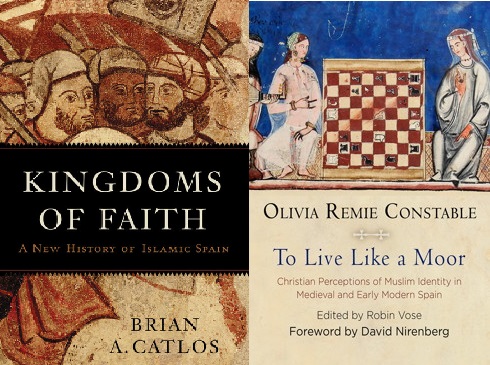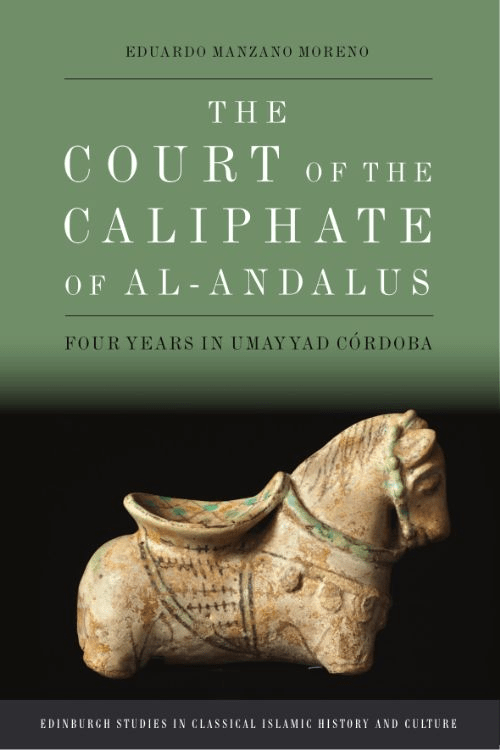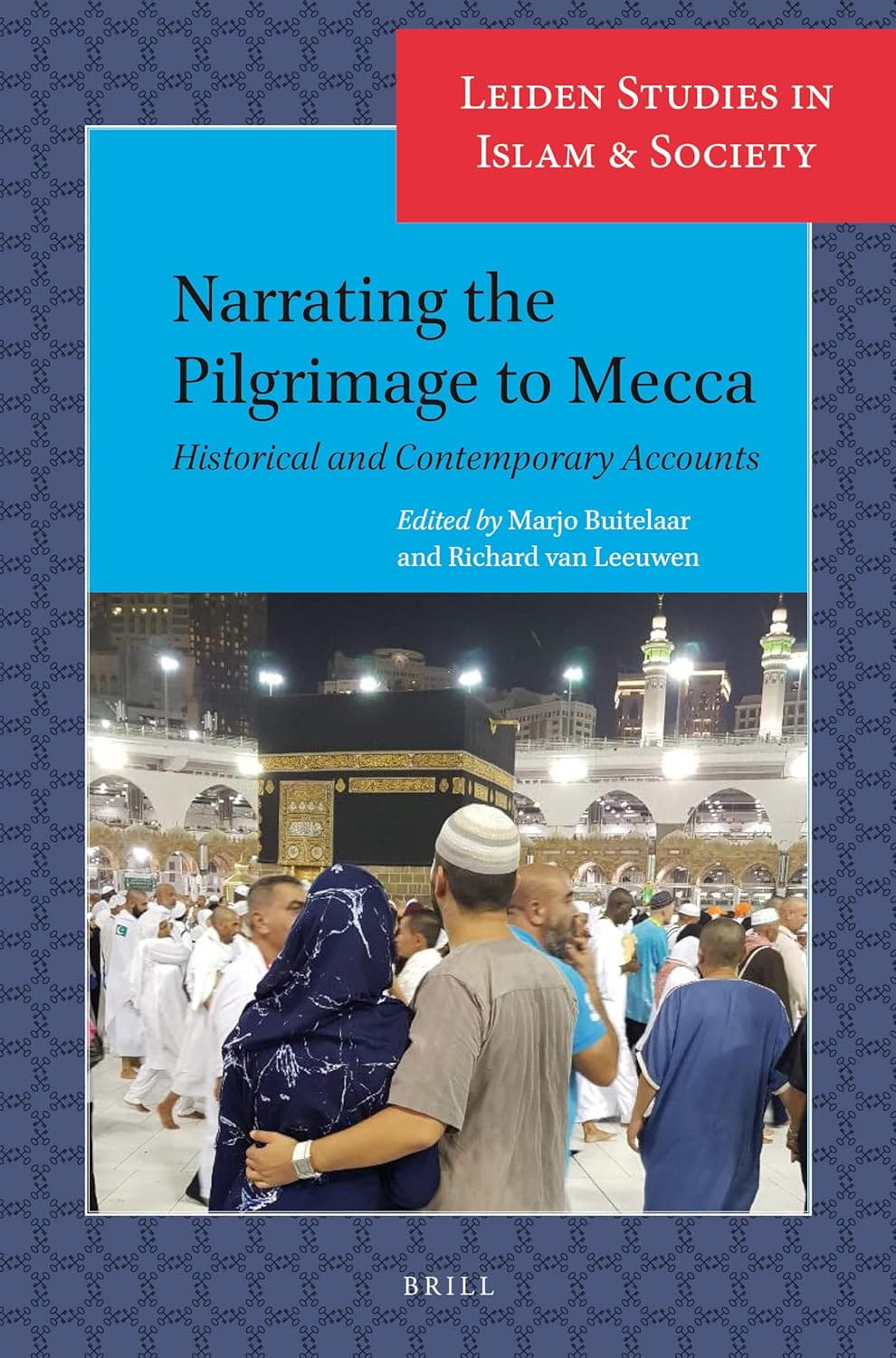
Kingdoms of Faith: A New History of Islamic Spain
Tom Verde
Brian A. Catlos.
2018, Basic Books, 978-0-465-05587-6, $35 hb.
(Reviewed together with To Live Like a Moor: Christian Perceptions of Muslim Identity in Medieval and Early Modern Spain by Olivia Remie Constable. Robin Vose, ed. 2018, University of Pennsylvania Press, 978-0-812-24948-4, $55 hb.)
Brian Catlos offers a fresh treatment of the multicultural tapestry of al-Andalus (medieval Islamic Spain). Drawing on recent North African and European scholarship, plus overlooked “stories of women, slaves, renegades, and functionaries,” he emphasizes that rather than a mono-cultural emirate, al-Andalus was a complex network of more-or-less-independent enclaves and principalities (taifas). In these diverse communities, “episodes of cross-religious and cross-ethnic solidarity; of alliances and friendships … forged between the faiths” of Judaism, Islam and Christianity, were far more common than the polarized, political history of the Reconquista, the Catholic reconquest of the Iberian Peninsula completed in 1492, would have us believe. Not everyone always got along, yet “Islamic Spain” was, for the various peoples living there, as much a cultural identification as a religious one. Digging deeply into that identity, the late Olivia Remie Constable dissects the manifold ways in which “Moorish” customs and lifestyles endured in the wake of the Reconquista, when local Muslims, forced to convert to Christianity, emerged as Moriscos. She explores cultural legacies in chapters focusing on subjects such as clothing, food and bathing. In late medieval Spain, eggplants and couscous might have indicated a Muslim diet, yet ended up on Spanish royal tables as exotic delicacies, for example. The bathhouse, essential for ritual cleanliness in Islam, also served “social, recreational and cultural functions.” Images from 15th-century illuminated manuscripts demonstrate “the similarities and continuities in bathhouse culture and usage in Christian and Muslim regions.”
You may also be interested in...

New Perspective Offered in The Court of the Caliphate of al-Andalus — Our Book Review
Author Eduardo Manzano Moreno gives life to a court scribe’s observations of Córdoba to offer a rarely explored view of the era
Essays Unpack the Evolving Hajj and Umrah Experience
This volume of essays juxtaposes historical first-hand narratives of Hajj and Umrah journeys with oral interviews of contemporary pilgrims to show the transformative power of storytelling.